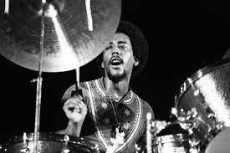
Three Wishes
While hanging out with Roy McCurdy the Baroness had the pleasure of asking him what he would wish for if magically they could be realized and he told her:
- “For my family to be happy and secure.”
- “To play as often as I wanted to, consistently good.”
- “Oh, I don’t know! To be happy. And peace of mind. That’s probably… probably is it.”
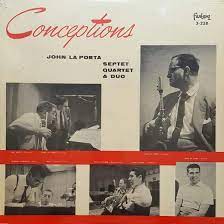
Daily Dose Of Jazz…
Louis Raphael Mucci was born December 13, 1909 in Syracuse, New York and began as a baritone horn player and was appearing in professional settings by the time he was ten years old. As a teenager he switched to trumpet and worked in the late 1930s with Mildred Bailey and Red Norvo before joining Glenn Miller’s ensemble in 1938-1939.
During World War II he played in the bands of Bob Chester, Hal McIntyre, Claude Thornhill, and Benny Goodman. In the first half of the 1950s Lou worked as a house musician for CBS and also recorded with Buddy DeFranco and Artie Shaw. Later in the decade he worked with Helen Merrill, John LaPorta and Miles Davis, the latter lasting into the early Sixties.
Trumpeter Lou Mucci, who also played with Kenny Burrell in 1964, transitioned on January 4, 2000.
More Posts: history,instrumental,jazz,music,trumpet
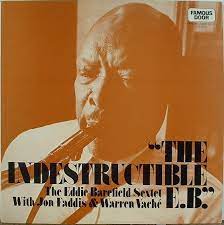
Daily Dose Of Jazz…
Edward Emanuel Barefield was born on December 12, 1909 in Scandia, Iowa, and grew up in Des Moines, Iowa. His father was a guitarist, his mother a pianist. He began playing the saxophone at the age of twelve when his mother bought him the instrument as a Christmas gift, and he took it apart to see how it worked.
He started playing throughout the Midwest, and gained his first major big-band experience with the Bennie Moten Orchestra of 1932. This led to work with Zach Whyte’s band and at 24 was offered a position in Cab Calloway’s orchestra in 1933. Eddie arranged and wrote music for Calloway for over 40 years.
Barefield conducted the orchestra for Ella Fitzgerald after Chick Webb passed away in 1939. In addition, he performed with McKinney’s Cotton Pickers, Les Hite, Fletcher Henderson, Don Redman, and Benny Carter. After the end of the big band era he continued to work by conducting shows, free-lancing, and playing in Europe.
He was the musical director for the original Broadway production of Streetcar Named Desire in 1947. He spent a decade in the band of the Ringling Brothers and Barnum & Bailey Circus, and composed and arranged for Benny Goodman, Glenn Miller, Paul Whiteman, and Jimmy Dorsey. Later in his life, Barefield worked with the Illinois Jacquet big band. Eddie appeared in films, including Cab Calloway’s Hi-De-Ho, Al Jolson’s The Singing Kid, Every Day’s a Holiday, and The Night They Raided Minsky’s.
Saxophonist, clarinetist and arranger Eddie Barefield, who arranged for the ABC Orchestra, transitioned from a heart attack at Mount Sinai Hospital in New York on January 4, 1991.
More Posts: arranger,bandleader,clarinet,history,instrumental,jazz,music,saxophone
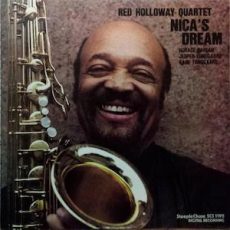
Requisites
Nica’s Dream ~ Red Holloway Quartet | By Eddie Carter
For my discussion this morning, I’ve chosen a swinging 1984 session by The Red Holloway Quartet. Nica’s Dream (SteepleChase Records SCS 1192) highlights the group in a program of jazz standards and original tunes. Red was born James Wesley Holloway in Helena, Arkansas. He began playing the banjo and harmonica as a child before graduating to the tenor sax at age twelve. In this session, he is equally skilled on the alto sax (tracks: A2, B2, B4) and tenor sax (A1, A3, B1, B3). Red is joined on this date by an excellent rhythm section, Horace Parlan on piano, Jesper Lundgaard on bass, and Aage Tanggard on drums. My copy used in this report is the original Danish Stereo release.
Side One starts with Reshma Rani Barnase, an uptempo original by Red Holloway. Red initiates the song’s lively theme, then gives an enthusiastic opening solo. Horace takes the baton and sprints through the following reading. Jesper does a bit of brisk walking next; afterward, Red returns to add a few more spirited remarks ahead of the finale. The leader switches to the alto for a gorgeous rendition of Lover Man by Jimmy Davis, Roger Ramirez, and Jimmy Sherman. The quartet begins with a lovely melody that leads to a stunning opening statement by Holloway. Parlan demonstrates his affection for this song in the next delicately tender performance. The saxophonist concludes the piece in fine form with a dreamy climax.
Love For Sale by Cole Porter places Red back on tenor for a gentle introduction that climbs to the ensemble’s festive theme. Red opens with a lusty statement that’s full of energy. He shares the next reading with Jesper in a robust exchange before the quartet’s closing chorus fades into nothingness. Side Two starts with Nica’s Dream by Horace Silver. It was composed in honor of Baroness Kathleen Annie Pannonica de Koenigswarter, a friend and patron of jazz musicians. This one starts from the group’s swift melody and does not let up until the final note. Holloway charges into the opening statement with a blazing interpretation. Parlan ignites the second statement with intense heat, and Red and Aage get their licks in an immensely satisfying finale.
Georgia on My Mind by Hoagy Carmichael and Stuart Gorrell gets going with Red back on alto for the medium theme and the tasty treat he delivers with deceptive ease on the opening solo. Horace takes the second spot with an endearing presentation he handles skillfully. Aage gets the last word and strolls in the finale toward the foursome’s closing chorus. Red Holloway’s 369 Blues is a happy groove that commences with the quartet’s collective melody that gets your foot tapping along from the outset. Holloway provides plenty of enjoyment on the opening tenor solo. Parlan steps up next to take a short, exhilarating ride, then Red and Tanggard engage in a delightful conversation ahead of the theme’s return.
Wee by Denzil Best brings the album to a close with the quick notes of the ensemble’s melody. Red takes his final turn on the alto sax and flies furiously through the first solo. Horace continues the aggressive pace on the second interpretation. Red and Aage bring a few more fireworks in a fleet interchange of ideas before the quartet wraps it up. Nils Winther produced Nica’s Dream, and Thomas Brekling was the recording engineer. The sound quality is superb, and the musicians draw the listener into the music. If you’re new to Red Holloway or are a longtime fan, I would like to offer Nica’s Dream by The Red Holloway Quartet for your consideration. It’s an enjoyable album that would make a terrific addition to any library and is worth every penny!
~ Georgia on My Mind, Love For Sale, Lover Man – Source: JazzStandards.com ~ Nica’s Dream, Red Holloway – Source: Wikipedia.org ~ © 2022 by Edward Thomas Carter
More Posts: choice,classic,collectible,collector,history,instrumental,jazz,music,saxophone
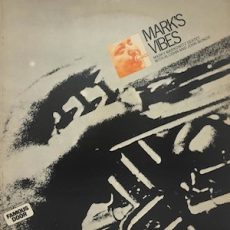
Daily Dose Of Jazz…
Marky Markowitz was born Irwin Markowitz but also known as Irving Markowitz on December 11, 1923 in Washington, DC. The youngest of seven children of Russian-Jewish immigrants, he learned the trumpet at the local Police Boys’ Club. He played early in his career in a number of big bands during the Forties, including those of Charlie Spivak, Jimmy Dorsey, Boyd Raeburn, and Woody Herman. He played in Buddy Rich’s orchestra in 1946–47, then returned to service under Herman in 1947–48.
Moving his family from Washington, D.C. to New York City in 1958 he eventually settled in Nyack, New York where he worked primarily as a studio musician in the 1960s, 1970s, and 1980s. During this period in his career he did appear on stage with Herman, Gene Krupa, Lee Konit, Ralph Burns, George Russell, Al Cohn, Paul Desmond, and Bill Evans. Marky was a first call trumpeter for many top artists of the time including Paul Simon, Aretha Franklin, Stevie Wonder, the Young Rascals, Frank Sinatra, Tony Bennett, Dionne Warwick, Maynard Ferguson, George Segal, and many others. He played as well on hundreds of advertising jingles, TV ads and movie scores.
He was a perennial on the Jerry Lewis Labor Day Telethon for Muscular Dystrophy, had a vocal impression of Louis “Satchmo” Armstrong, and performed in his hometown with an All-Star band, led by Nelson Riddle, at the Inaugural Ball for President Ronald Reagan’s 2nd term.
Trumpeter and flugelhornist Marky Markowitz, who recorded one album as a leader titled Marks Vibes, transitioned on November 18, 1986.
More Posts: bandleader,history,instrumental,jazz,music,trumpet




